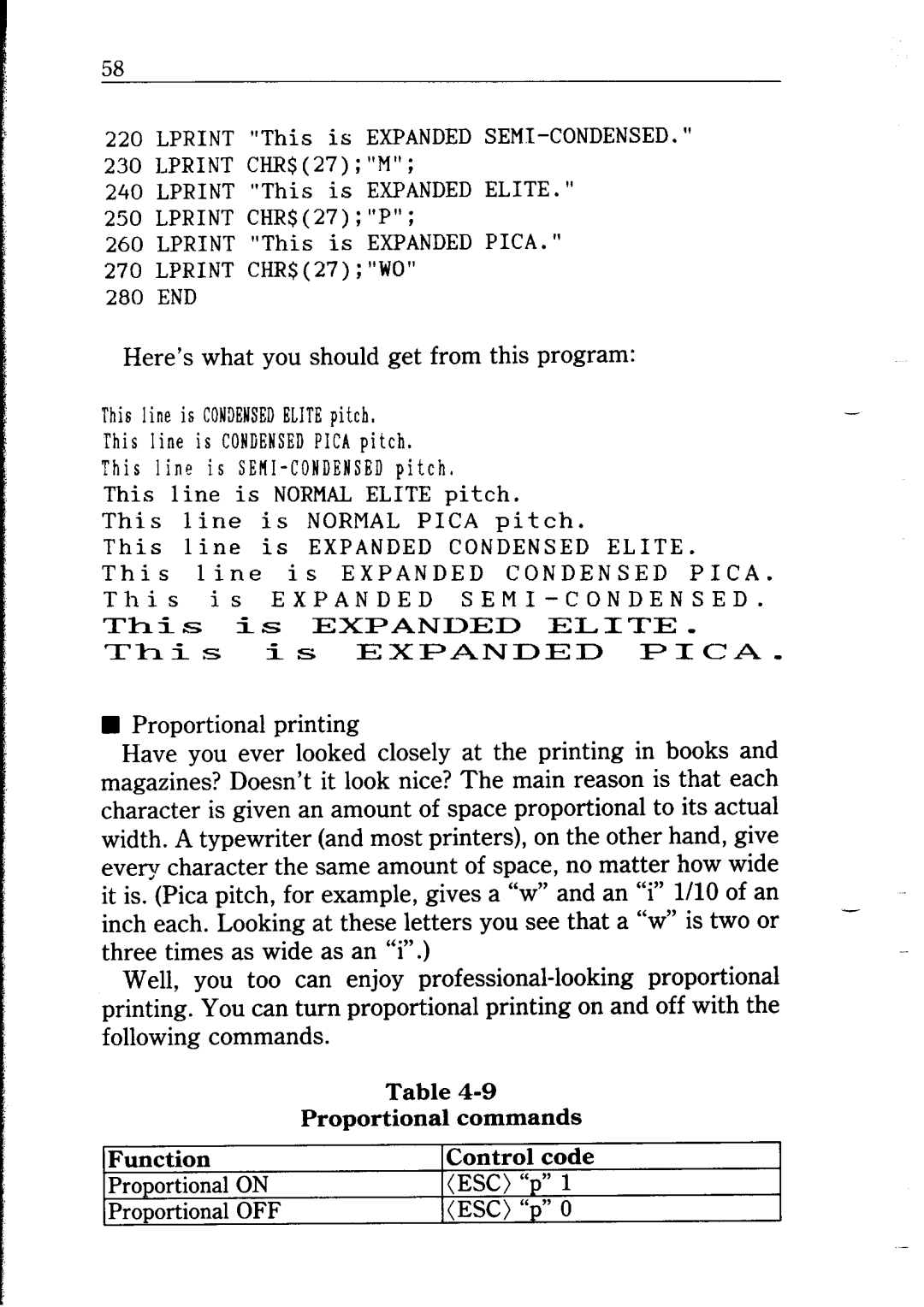
220 LPRINT "This is EXPANDED
230 LPRINT CHR$(27);"M";
240 LPRINT "This is EXPANDED ELITE."
250 LPRINT CHR$(27);"P";
260 LPRINT "This is EXPANDED PICA."
270 LPRINT CHR$(27);"WO"
280END
Here’s what you should get from this program:
This line is CON3ENSEDELITEpitch. |
|
|
| |||
This line is CONDENSEDPICApitch. |
|
|
| |||
This line is |
|
|
| |||
This line is NORMALELITE pitch. |
|
| ||||
This | line | is | NORMAL PICA | pitch. |
| |
This | line | is | EXPANDED | CONDENSED ELITE. |
| |
This | line | is | EXPANDED | CONDENSED | PICA. | |
This | is | EXPANDED |
| |||
This | is |
| EXPANDED |
| ELITE, |
|
This |
| is | EXPANDED | PICA, | ||
n Proportional printing
Have you ever looked closely at the printing in books and magazines? Doesn’t it look nice? The main reason is that each character is given an amount of space proportional to its actual width. A typewriter (and most printers), on the other hand, give every character the same amount of space, no matter how wide it is. (Pica pitch, for example, gives a “w” and an “i” l/10 of an inch each. Looking at these letters you see that a “w” is two or three times as wide as an “i”.)
Well, you too can enjoy
| Table |
| |
| Proportional | commands | |
Function | ON | Control code | |
Proportional | (ESC) | “p” 1 | |
Proportional | OFF | (ESC) | “p" 0 |
